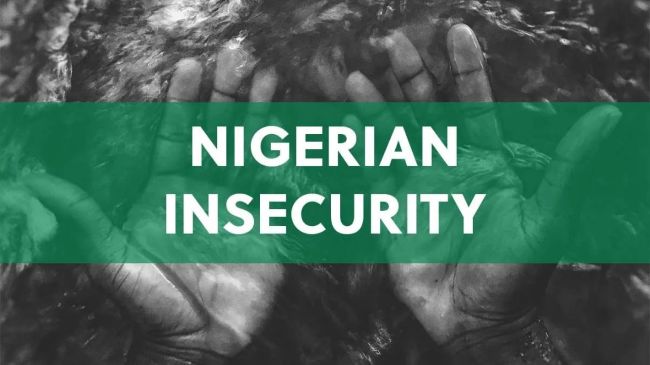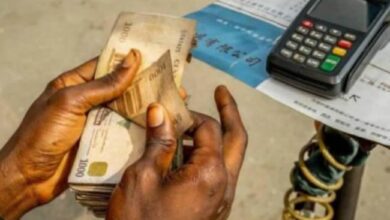The Role of Corruption in the Persistence of Insecurity in Nigeria
"Corruption has undermined the structural integrity of Nigeria’s leadership, particularly in the security sector..."
 By ’Tunde Adeparusi
By ’Tunde Adeparusi
Former President Muhammadu Buhari, in his inaugural address on May 29, 2015, boldly declared: ‘Insecurity, pervasive corruption, and the longstanding fuel and power shortages are our immediate concerns. We will tackle them head-on’. This statement underscores the former president’s recognition of corruption as a fundamental factor contributing to Nigeria’s economic challenges. Regrettably, a decade later, the situation remains unchanged.
Nigeria, boasting the largest population and economy in Africa, stands as a continental giant. However, despite its impressive stature, the country continues to grapple with pervasive insecurity, manifesting in various forms, including terrorism, banditry, kidnapping, and armed robbery. Despite many attempts at intervention by government and the distribution of huge sums of money to security organizations, the situation has continued to deteriorate.
Of the numerous factors that have been identified as causing this unfortunate situation, corruption remains one of the most dangerous and effective. Corruption does not only erode the efficiency of security institutions but also misdirects resources, erodes the rule of law, and creates an environment in which criminal elements operate with impunity. This article aims to examine the complex relationship between corruption and insecurity in Nigeria, with emphasis on the aspects of governance, policing, arms proliferation, economic hardship, and public confidence in the security sector.
The Human Cost of Insecurity in Nigeria: Stories of Victims and Survivors
Effective governance is critical for national security; however, corruption has undermined the structural integrity of Nigeria’s leadership, particularly in the security sector. Government officials have misused or embezzled the funds provided for defence and security purposes. A clear example is the 2015 arms procurement fraud in which billions of Naira meant for the acquisition of military hardware were allegedly stolen by high-ranking officials who left the troops depleted of equipment in the fight against Boko Haram insurgents.
Further, the use of “security votes,” a non-accountable fund usually provided to state governors to tackle security issues, has been characterized by secrecy and embezzlement. Instead, these funds are often pocketed by corrupt officials to finance poorly coordinated and underfunded security measures. Lack of financial discipline in security organizations leads to inefficiency and allows criminal groups to operate without much opposition.
The police and military, as Nigeria’s law enforcement agencies, are called to maintain order and discipline, but corruption has rendered them ineffective. Many officers are poorly motivated and underpaid and, therefore, engage in bribery, extortion, and collusion with criminals. It is reported that police officers demand money to release criminals or to overlook certain crimes. Sometimes, security personnel give out information to bandits or terrorists, thereby halting operations and encouraging other criminals:
The judiciary, an essential component of justice, is not immune to corruption. It is evident that judges are being paid bribes to grant bail to high profile criminals or delay the trial of important persons. This lack of accountability in the judicial system reduces detection because criminals think they can buy their way out of the justice system. It results in a vicious cycle where crime increases, and the public loses confidence in the police and courts.
One of the most direct ways through which corruption leads to insecurity in Nigeria is through the arms trade. Although the importation of weapons is regulated, there are cases where officials at check points accept bribes to allow arms and ammunitions into the country. These weapons are usually seized by insurgents, bandits and kidnappers and therefore increase the severity and complexity of crimes.
For instance, investigations have established that weapons of military grade that were procured for state security have found their way into the hands of criminals through corrupt deals between rogue security personnel and arms dealers. This has the effect of increasing the number of attacks on communities and, in extension, making the work of the police even harder. This is because, without proper supervision and accountability in the acquisition of arms and borders, Nigeria will remain a haven for untracked weapons.
Furthermore, it is important to note that government corruption worsens economic hardship, which in turn leads to security threats. Stealing of public funds that were supposed to be used for welfare, education and creating jobs means that millions of young Nigerians are unemployed and angry. This economic injustice makes them easy targets for recruitment by criminal groups and extremist organizations.
Boko Haram and ISWAP terrorists as well as bandits take advantage of this weakness to offer money, protection and a place to belong to the vulnerable youths. In the rural areas, the bandits get young men who have not been to school and who have no job to go and work for them, thus maintaining the cycle of violence and lawlessness. Hence, addressing the root causes of economic hardship through transparent use of public funds and investment in youth projects is a proper way of tackling this problem.
Security operations are most successful when there is a good working relationship between the government, the police, other security agencies and the people. However, corruption erodes the public trust, which makes people fail to report crimes or work with the police. When the public perceives the police as being part of the criminal activity, then the public will not want to report any crimes since this will tend to protect the criminals and hence weaken the country’s security architecture. For instance, in many parts of northern Nigeria where banditry and terrorism are on the rise, people not only avoid giving information to the police, but they do so because they fear that corrupt officers may sell them to the criminals, and they will be killed. To restore the public confidence in the security institutions it is necessary to ensure that corrupt officers are punished and that all officers work professionally.
The lingering question remains: is the government genuinely committed to confronting insecurity head-on? The answer should unequivocally be yes, as ensuring the safety and security of its citizens is the government’s primary responsibility. For this to be effective, corruption, the hydra-headed monster, must be contained with unyielding determination.
Corruption is the root of insecurity in Nigeria; it erodes governance, neutralizes law enforcement, fosters access to arms, and worsens economic strains. And if corruption is not curbed, efforts to fight crime and restore peace will be in vain. To break this cycle, the Nigerian government must act as follows:
Strengthening Anti-Corruption Laws and Enforcement: Current anti-corruption laws should be enforced, and the EFCC should be allowed to probe and charge corruption offences without interference from politicians.
Ensuring Transparency in Security Funding: Security budgets should be open to the public and security votes should be explained to avoid misuse.
Reforming the Law Enforcement and Judicial System: Police officers’ and judges’ salaries and working conditions should be enhanced to minimize corruption and at the same time those found to have engaged in corrupt practices should be heavily punished.
A 2019 report by the Small Arms Survey estimated that Nigeria has approximately 3.3 million to 3.6 million illicit small arms and light weapons. Moreover, another 2020 report by the Conflict Armament Research (CAR) also highlighted Nigeria as a significant hub for illicit arms in West Africa. Therefore, enhancing Border Security and Arms Control: Using technology means that border controls can be strengthened and independently verified to prevent the flow of arms into the hands of criminals.
Economic and Social Development: Job creation, vocational training, and social welfare programmes should be put in place to fight poverty and unemployment so that youths are not easily recruited to become criminals or terrorists.
In conclusion, the government has the responsibility to ensure that the security institutions are credible and can be trusted by the public through making them accountable and encouraging people to report cases of misconduct. Thus, it is possible to state that only with the help of systemic changes, political will, and the fight against corruption it will be possible to eliminate the deep-seated security issues and create a normal society in Nigeria.
’Tunde Adeparusi, a doctoral researcher and a member, British Society of Criminology (BSC) UK, wrote via [email protected]











